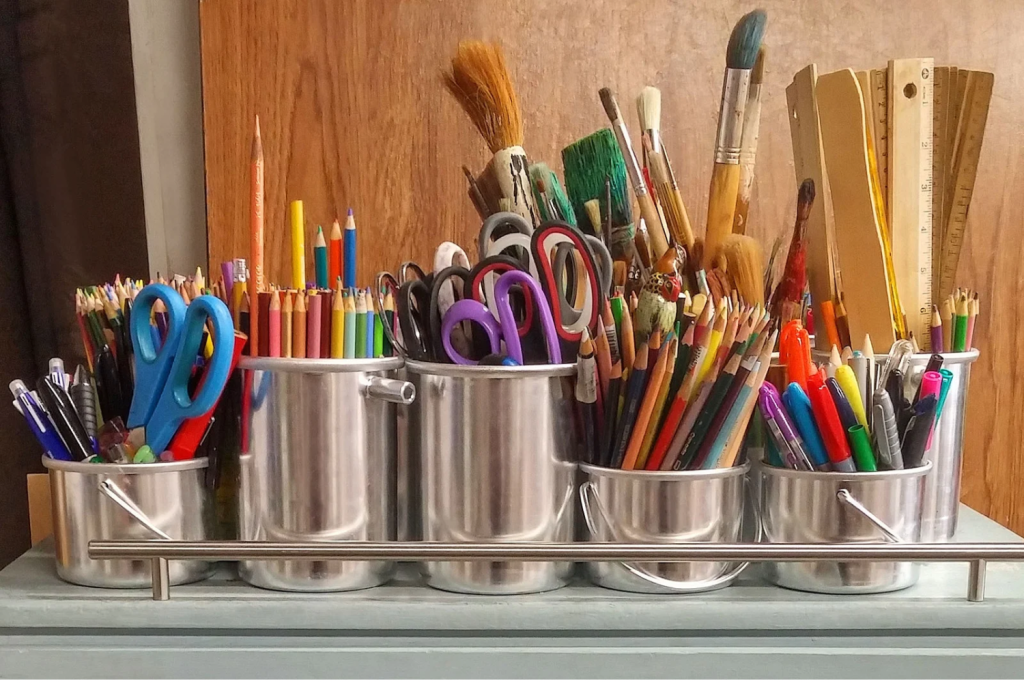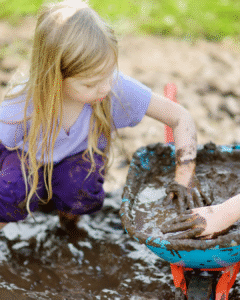Journaling is a powerful tool that can benefit kids in many ways. By providing a safe and private space for self-expression and reflection, journaling can help kids develop important emotional, cognitive, and communication skills. From improving vocabulary and fine motor skills in younger children to reducing stress and developing critical thinking skills in tweens and teenagers, journaling can be a valuable activity for kids of all ages. In this post, we will explore the benefits of journaling for kids and provide tips on how to incorporate journaling into your child’s life, as well as provide some great journal prompts for happiness. Whether your child is just starting out or is already an avid journal writer, this post will provide valuable insights and advice on how to make the most of this rewarding activity.
Table of Contents
Journaling can also help to promote growth mindset in children in several ways. One of the key principles of growth mindset is the belief that one’s abilities can be developed through hard work and dedication. Journaling provides a space for kids to reflect on their experiences and chart their progress over time, which can help reinforce the idea that their efforts can lead to improvement.
By encouraging kids to set goals and track their progress, journaling can also help them develop a sense of agency and control over their lives. When kids see that their actions can lead to positive outcomes, they are more likely to develop a growth mindset and believe in their ability to achieve their goals.
Journaling can also help kids reframe challenges and setbacks as opportunities for growth and learning. By encouraging kids to reflect on what they have learned from difficult experiences, journaling can help them develop resilience and a growth-oriented mindset. When kids view challenges as opportunities for growth, they are more likely to persist in the face of difficulty and approach new challenges with a positive attitude.
What is Journaling
Journaling is a form of expressive writing that involves keeping a personal record of one’s thoughts, feelings, and experiences. It can take many forms, including daily diaries, gratitude journals, and goal-setting journals. Journaling can be done in a variety of formats, from traditional pen and paper to digital platforms such as apps or websites.
For kids, journaling can be a powerful tool for self-expression, personal growth, and development. By giving kids a safe and private space to explore their thoughts and feelings, journaling can help them process their emotions, reflect on their experiences, and gain a better understanding of themselves and the world around them. Journaling can also help kids develop important writing and communication skills, such as organization, coherence, and clarity. By practicing these skills on a regular basis, kids can improve their ability to articulate their thoughts and feelings, which can help them in many aspects of their lives.
In addition to promoting emotional and cognitive development, journaling can also be a fun and creative activity that kids can enjoy on their own or with others. By encouraging kids to personalize their journals with drawings, stickers, or collages, journaling can become a fun and engaging way to express themselves and develop their artistic skills.

Whether it’s used for self-reflection, goal-setting, or creative expression, journaling can help kids develop important skills and gain a deeper understanding of themselves and the world around them.
Why journaling is good for kids
There are many reasons why journaling is good for kids. Here are just a few:
- Self-expression: Journaling allows kids to express their thoughts and feelings in a safe and private space. This can be especially beneficial for children who may be hesitant to share their emotions with others.
- Emotional regulation: Writing in a journal can help kids regulate their emotions by providing a healthy outlet for their feelings. By putting their thoughts and feelings on paper, kids may find it easier to process and cope with difficult emotions.
- Reflection: Journaling encourages kids to reflect on their experiences, which can help them learn and grow. By reflecting on what they’ve learned and what they could do differently in the future, kids can develop important critical thinking skills.
- Writing skills: Journaling can also help kids develop important writing and communication skills. By practicing their writing on a regular basis, kids can improve their vocabulary, grammar, and sentence structure.
Getting started
If you’re interested in introducing your child to journaling, here are some tips to get started:
- Choose a journal: Help your child choose a journal that speaks to their personality. This can be a fun activity that allows them to express their individuality. They may also choose to make a digital journal.
- Set aside a specific time and place: Encourage your child to set aside a specific time and place for journaling. This can help establish a routine and make journaling a regular part of their day.
- Provide writing prompts: If your child is unsure of what to write about, provide them with some writing prompts or ideas. This can help them get started and keep their writing focused. Some ideas could be journal prompts for happiness, gratitude, daily thoughtful journal prompts, goal setting, and many more unique journal prompts. (Click here for examples below)
Benefits of Journaling
While journaling can be a beneficial activity for kids of all ages, there are some specific benefits for different age groups. For younger children, journaling can be a great way to develop fine motor skills and improve vocabulary. By practicing writing and drawing on a regular basis, kids can improve their handwriting and coordination, while also expanding their vocabulary as they describe their experiences and emotions. Journaling can also encourage creative thinking in younger children, as they come up with new ideas for how to express themselves on the page.

For tweens and teenagers, journaling can be especially beneficial for navigating the complexities of adolescence. As kids enter adolescence, they are faced with new challenges and stresses, such as peer pressure, changing relationships, and academic pressure. Journaling can be a safe and healthy outlet for these stressors, helping kids process their emotions and reflect on their experiences. Additionally, journaling can help teenagers develop critical thinking skills, as they reflect on their thoughts and beliefs, and develop new perspectives on their lives and the world around them.
Other Ideas
Create Collages
Creating collages can be a great way to enhance the journaling experience for kids. Collages can be made from a variety of materials, such as magazine cutouts, photographs, and other found objects. They can be used to illustrate specific journal entries or as a way to capture a mood or feeling. Creating a collage can be a fun and creative way for kids to express themselves visually, and can be a great option for kids who may not feel comfortable expressing themselves through writing alone. By combining words and images, collages can help kids explore their thoughts and feelings in a more dynamic way, making the journaling experience more engaging and rewarding

Create a Gratitude Jar
Creating a gratitude jar is a fun and meaningful activity that can complement journaling for kids. A gratitude jar is a simple jar or container that is filled with notes of things that the child is grateful for. To create a gratitude jar, the child can decorate a jar or container and cut out small pieces of paper to write down things they are grateful for. Whenever the child is feeling grateful, they can write it down on a piece of paper and add it to the jar. The jar can be a visual reminder of all the good things in the child’s life and can serve as a source of inspiration when they’re feeling down or having a tough day. The gratitude jar can also be incorporated into the journaling process, with the child writing about what they’re grateful for in their journal and adding it to the jar as a physical reminder of their gratitude. Overall, creating a gratitude jar can be a wonderful way to help kids cultivate a positive mindset and develop a sense of appreciation for the world around them.
Mindful Moments
Incorporating mindful moments into a child’s journaling practice can be a great way to help them develop greater awareness and emotional regulation. Mindful moments are moments of intentional presence and focus on the present moment, and can include activities like deep breathing, guided meditation, or yoga. When combined with journaling, these moments can help kids quiet their minds and access their inner wisdom, allowing them to better express their thoughts and feelings on the page. To incorporate mindful moments into journaling, consider beginning each session with a brief mindfulness exercise, or encouraging your child to take a mindful pause whenever they feel stuck or overwhelmed. Mindful moments can help kids develop greater emotional resilience and self-awareness, making the journaling process even more meaningful and rewarding.

Have discussions with your Children
In addition to journaling, having open discussions with our kids can be a valuable way to support their emotional growth and development. Active listening is a crucial component of these discussions, as it helps kids feel heard and validated. Active listening involves focusing on the speaker, asking clarifying questions, and summarizing what the speaker has said to ensure understanding. When we actively listen to our kids, we show them that their thoughts and feelings are important and that we value their perspectives. This can create a safe and supportive space for our kids to express themselves and can help strengthen the parent-child relationship. By combining journaling with open discussions and active listening, we can help our kids develop greater self-awareness and emotional regulation, while also strengthening our connection with them.
Journal Prompts for Happiness
Here are 10 journal prompts for happiness for elementary age kids:
- What makes you happy when you wake up in the morning?
- What is your favorite thing to do with your family?
- What is something kind someone has done for you recently?
- What is something you’ve learned that makes you proud of yourself?
- What is your favorite memory from this past week?
- What is something you are looking forward to doing in the near future?
- What is a hobby that makes you happy?
- What is your favorite thing about your best friend?
- What is something that makes you laugh?
- What is something that makes you feel grateful?
And here are 10 journal prompts for happiness for middle school age kids:
- What is something that brings you peace and calm when you’re feeling stressed or anxious?
- What is a goal you have that, when accomplished, will bring you great happiness?
- Who is someone you look up to and why?
- What is a compliment that someone has given you recently that made you happy?
- What is something new that you’ve learned recently that you find interesting?
- What is a positive change you’ve noticed in yourself recently?
- What is a challenge you’ve faced recently and how did you overcome it?
- What is something you’re proud of yourself for doing recently?
- What is something that you do that makes other people happy?
- What is a kind act you can do for someone else that will make them happy?
Journal prompts for happiness are not the only prompts that you should use, but these are a great starting point! Journaling can be a fun and beneficial activity for kids (and adults!) of all ages. By providing a safe and private space for self-expression, reflection, and emotional regulation, journaling can help kids develop important skills that will serve them well throughout their lives. So if you’re looking for a way to help your child explore their thoughts and feelings, consider introducing them to the wonderful world of journaling!



